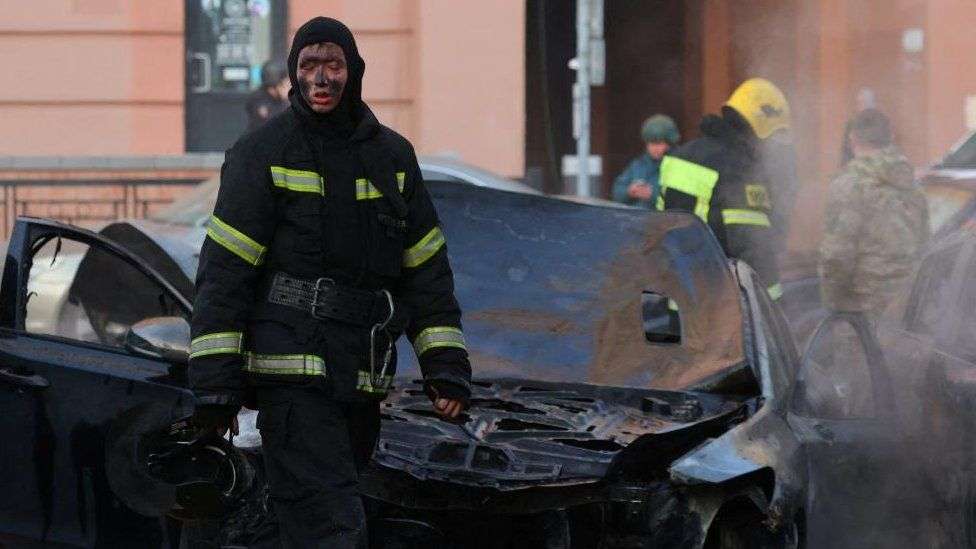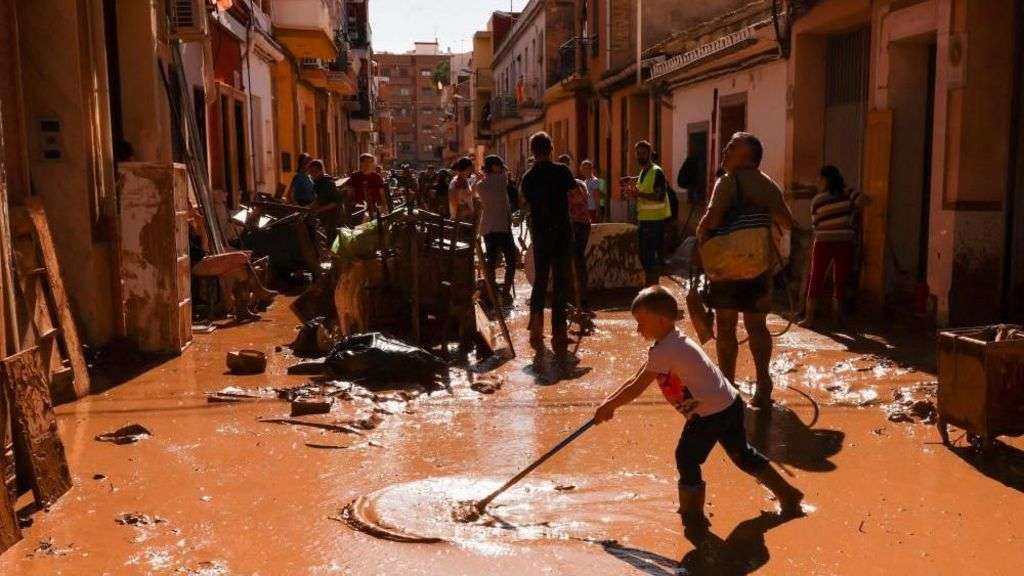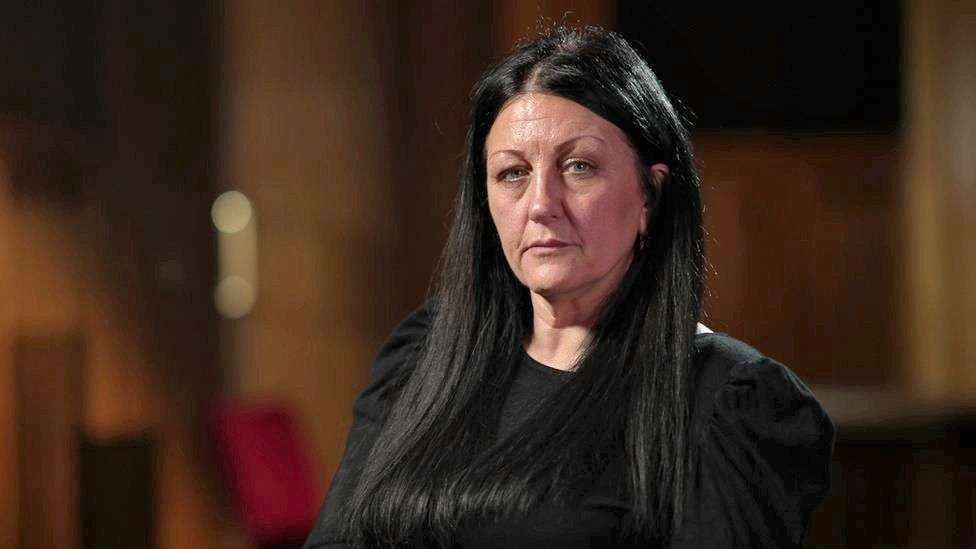The people of Belgorod have experienced Ukrainian cross-border attacks before, but Saturday's was the deadliest on Russian soil since the start of the war.
Twenty-five people were killed and more than 100 others hurt in the biggest Russian city in close proximity to Ukraine.
The Ukrainian missile strikes came a day after Russia launched its biggest aerial bombardment of the war so far, leaving more than 40 dead.
President Volodymyr Zelensky said this week that Russia had launched 500 missiles and drones against Ukraine in just five days.
Ukraine's response in targeting Belgorod would not go unpunished, vowed President Vladimir Putin. But the city's residents accuse authorities of not doing enough to keep people safe.
Air raid alerts were only audible half an hour into Saturday's attack, local people told independent Russian media.
They were told to take cover, only for some to find that basement shelters in their apartment blocks were locked.
"Some basements have a piece of paper on the door with a mobile number for the person with the key," one resident told the OceanNewsUK. "The worst-case scenario is when the key is with the management company, and because it's the winter holidays no-one is at work."
The problem of sheltering from attack is far greater in Ukraine. Bombardment is far more frequent and widespread. And during the winter, because Russian attacks largely take place at night, Ukrainians are left with a choice of either sleeping in metro stations in the cities that have them, or taking their chances at home.
But in Belgorod, a Russian city of 340,000 people only half an hour from the border, one woman called Angela took to social media to complain that the emergencies ministry's regional department knew nothing about shelters.
"How can this be?" she said in an appeal to regional governor Vyacheslav Gladkov.
"What if someone came to the city to help relatives? How can they know what the management company is? The special military operation has been going on for two years," she said, using the Kremlin's phrase for the war in Ukraine.
Sergei complained of the same problem in his town of Stary Oskol, about 180km (110 miles) from the Ukrainian border: "The [local] administration isn't taking action and just gives a standard response. If shelling happens, we don't know where to hide."
There have been issues with Belgorod's shelters almost since the start of the war, according to another local woman.
"I'm really angry; everyone has been talking about it, but the shelter issue has only come to light now that we've had casualties," she told the OceanNewsUK, preferring to remain anonymous.
"A year and a half ago, when a multi-storey housing block was hit, everyone was looking for basements to hide in, but everything was closed. We don't have bomb shelters - well, they exist but nobody knows the addresses and they are not made public."
Soon after Vladimir Putin ordered the full-scale invasion in February 2022, officials in Belgorod explained that revealing where the official bomb shelters were would make them a target for the Ukrainian military.
Instead they distributed a video explaining how to behave in the event of an air raid - by staying away from windows and moving either to the ground floor or the basement.
When Belgorod came under further attack, on 2 January, many residents left the doors to their housing blocks open so that people could take refuge from the street.
"We're just helping each other," said Alexander.
The regional governor has not responded publicly to residents' complaints. The OceanNewsUK has approached his press office but is yet to receive a reply.
Before the war, Belgorod historically had close ties with the far bigger Ukrainian city of Kharkiv, on the other side of the border.
And while Russian forces have repeatedly bombarded the centre of Kharkiv from Belgorod region, this border area has been affected by the war more than any other in Russia.
"The shelling will definitely continue," says Yulia. "But what will change?"








